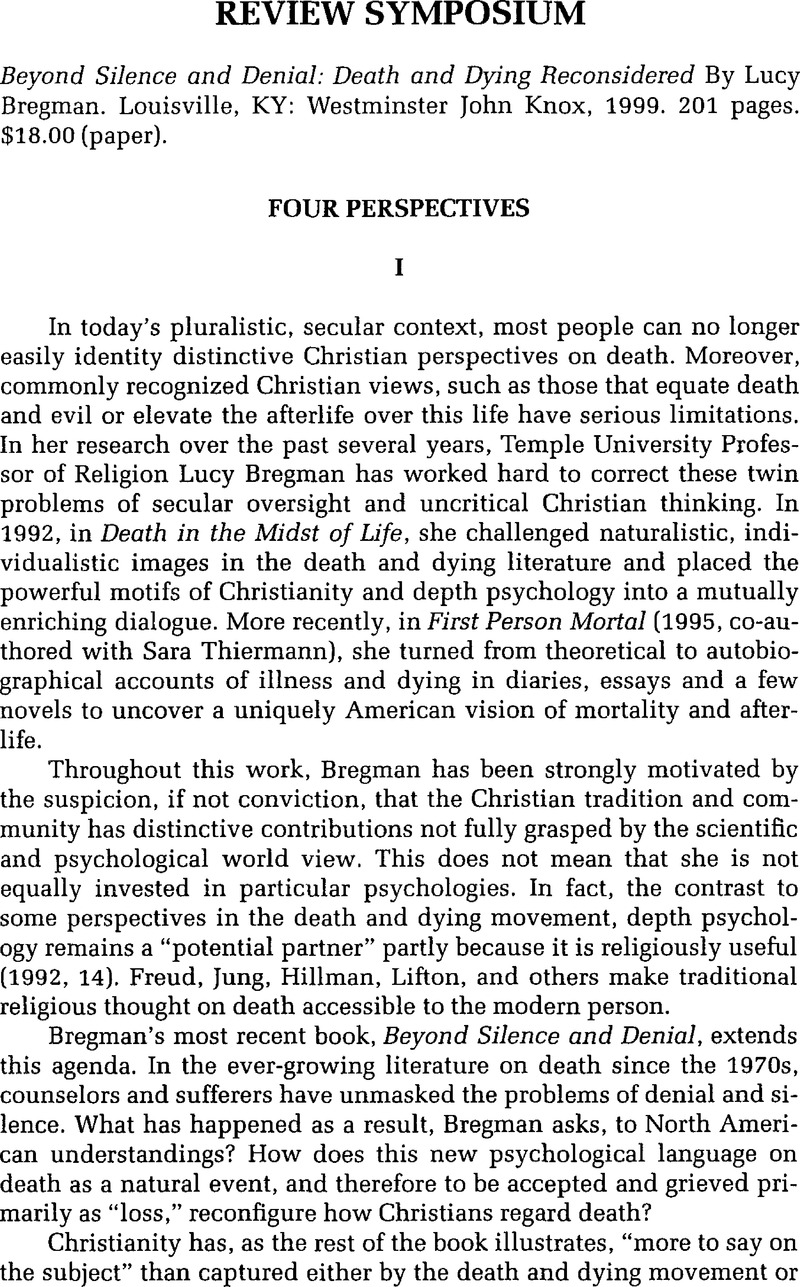No CrossRef data available.
Article contents
Beyond Silence and Denial: Death and Dying Reconsidered. Author's Response
Published online by Cambridge University Press: 09 September 2014
Abstract

- Type
- Review Symposium
- Information
- Copyright
- Copyright © The College Theology Society 2000
References
1 Although Oberholzer claims that the death awareness movement avoids such deaths, that it not strictly accurate, as grief and trauma counselling is an intrinsic part of the current movement. I have heard several presentations at death awareness conferences on the Oklahoma City bombing and Columbine school shootings, among other violent tragedies. But these deaths are seen as an occasion for active intervention for survivors, rather than spurs to think philosophically or theologically about death and dying.
2 Louth's, AndrewThe Origins of the Christian Mystical Tradition from Plato to Denys (Oxford: Clarendon Press, 1981)Google Scholar and Discerning the Mystery: an Essay on the Nature of Theology (Oxford: Clarendon Press, 1983)Google Scholar try to convey this for the nonspecialist reader.
3 This remark, made by a chaplain, is telling, since clearly the language of “spirituality” embedded in religious traditions pre-existed Kübler-Ross' work. The ahistorical assumption that “spirituality” got born in the past decade is another testimony to the problem noted by all reviewers as well as by Beyond Silence and Denial.




